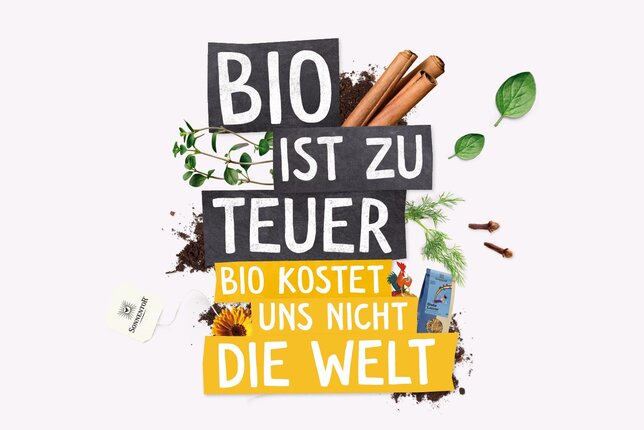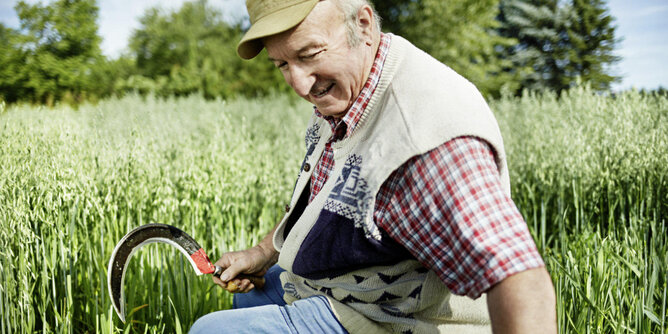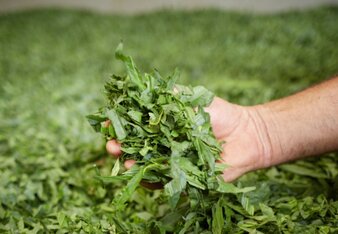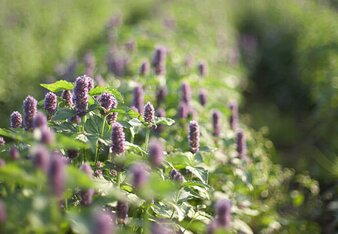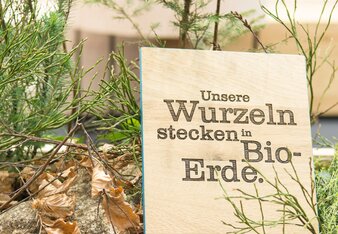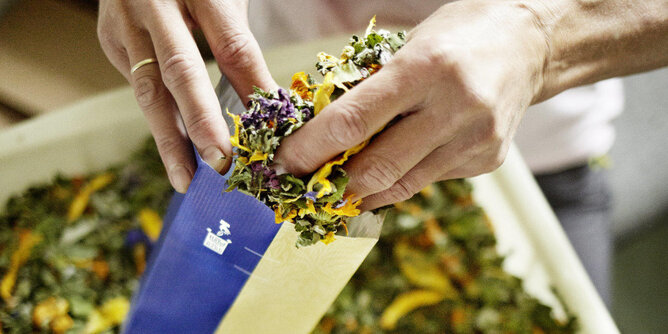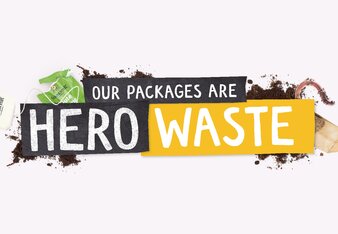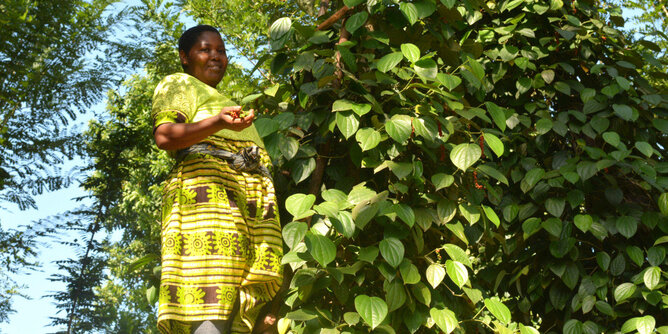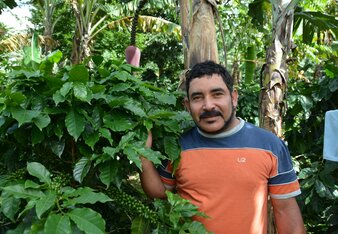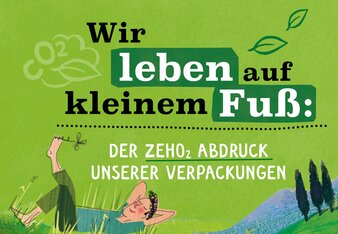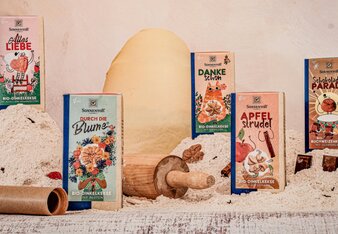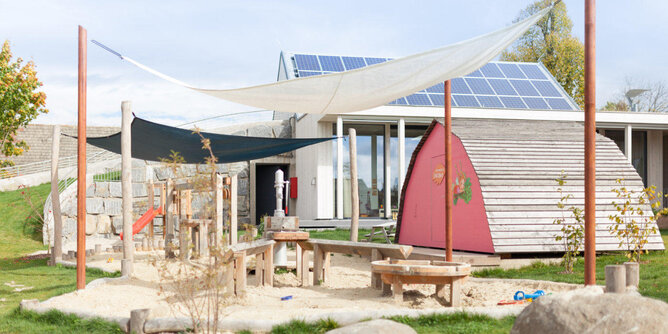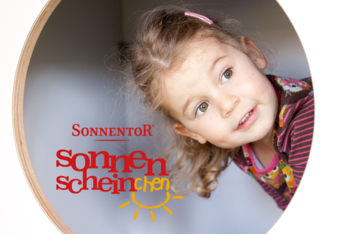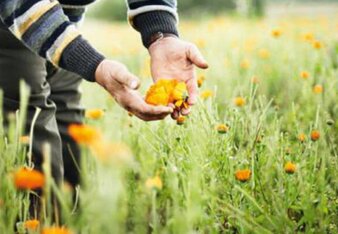We at SONNENTOR believe that appreciation and respect have not done anyone any harm. We are committed to those values when it comes to our environment, our employees, farmers, suppliers, customers, and human beings. This starts with ecological farming and ends with the “common good economy”.
Organic equals expensive? It's always a question of the perspective. Organic products do cost a little more, but at least it doesn't cost us our environment. By buying organic food, you are able to set an example for less pesticides on our plates, more diversity on our fields, more local work spaces with a "hands-on" mentality, independence from multiinternational corporations and a future for our grand-children.
Doesn't sound that bad for spending a few cents more. #EsGehtAuchAnders
Packaging should not just be pleasing for the eye. Especially for food products, it fulfills important tasks: It protects goods and their valuable ingredients, helps to transport them unharmed and ensures that customers receive important information on our products. At the same time, however, ever growing mountains of rubbish are created.
However, we will be part of this trend. For this reason, already back in 2008, we began to switch from conventional packaging such as plastic to sustainable materials. This has already saved some 400 tonnes of plastic - a valuable contribution to climate protection.
At SONNENTOR, farmers benefit from the fruits of their work - and with them, whole regions. Due to the sustainable practice of our international cultivation partners, value is added to their products. Products are harvested by hand and processed on site. This creates jobs in rural areas and secures the existence of many farmers' families over several generations. Because organic cultivation protects the soils and sets the best conditions for long-term, fertile harvests.
Our smiling sun stretches its rays to over 50 countries around the world. It is great to see that the ideas of organics & sustainability are gaining more and more fans. At the same time, the growing demand for our products leaves traces - in the form of CO2 emissions. To reach our enthusiastic customers, we need a lot of energy. Transport and heating are major sources of CO2 emissions - a total of around 260 tonnes. One might almost think that economic growth and sustainability are contradictory.
SONNENTOR has set out to prove the opposite - with success. How it works? There is no simple recipe, but a series of energy-saving ingredients.
Are you still buying palm oil? Probably not consciously, but avoiding it can sometimes be difficult. It is one of the most common carriers in the food industry. If chocolate, ice cream, pizza, biscuits or crackers - palm oil is used in food products, but also in soaps, lipsticks and cleaning products.
The reasons behind its use is quickly found. It is one of the cheapest vegetable oils and one of the most versatile oil available. It maintains a firm consistency at room temperature, is long-lasting and tasteless, which are perfect conditions to produce hazelnut cream & Co.
Urbanisation, closures of companies and farms - unfortunately a well-known scenario in the Waldviertel. Anyone who founds a new company here surely hasn’t done well at business studies, right? No! Rather top grades at biology! Embedded in the natural world of the Waldviertel, up to 13 children are nurtured by early childhood teachers and dedicated helpers. The one to six year-old youngsters can get to know and experience the cycle of nature and the Environment.
